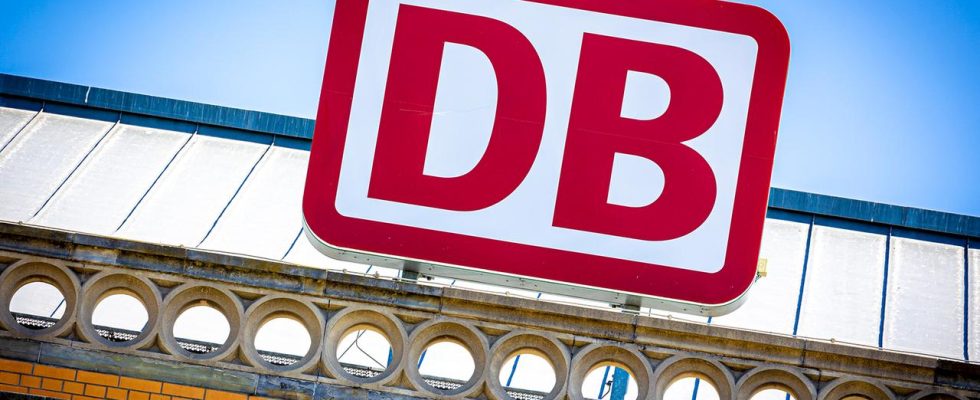faq
Politicians are struggling for the future of the ailing Deutsche Bahn. The Monopolies Commission advocates more competition and calls for the company to be broken up. What is the government planning, what are the arguments for and against breaking it up?
What are the facts behind the opinion of the Monopoly Commission to reason?
The Monopolies Commission advises the federal government on competition issues. In their analysis of the situation, the experts of the Monopolies Commission are of the opinion that competition on the railways has not made any significant progress. According to their sector report, Deutsche Bahn’s competitors have not gained any significant market share in either regional, freight or long-distance transport. According to this, the share of the competitors in the transport performance in local rail passenger transport rose by only one percentage point to 34 percent from 2020 to 2021.
Deutsche Bahn continues to dominate long-distance transport with a market share of around 96 percent. And in freight transport, too, competition stagnated between 2020 and 2021. Here, Deutsche Bahn’s competitors control around 55 percent of the market.
What are the suggestions monopoly commission?
In her current report “Time to GO: Finally quality-effective in the competition!” the Monopolies Commission calls for a split of Deutsche Bahn. The competition is to be promoted with a completely independent rail network. It is then about a split into infrastructure and operating companies.
It is high time for ambitious reforms, said Commission President Jürgen Kühling. This is shown not least by the serious quality deficiencies in the entire infrastructure and the many delays and train cancellations. The Commission recommends extensive economic and organizational independence so that the network feels committed to all users. According to the report, personal independence of the management board and the supervisory board of the new company from the transport companies of the DB Group should also be ensured.
In addition, the Commission urgently recommends that the quality targets set by the regulator in connection with improving the infrastructure be linked to the remuneration of DB management. For this, a structural cultural change in the management of the DB Group is absolutely necessary. The management must feel much more committed than before to all customers of the infrastructure.
The sale of tickets, for example, must also be more open to competition. Only then could competitors of the DB Group also be better perceived and booked by travelers, they say. According to the Commission’s experts, travelers could benefit directly from lower ticket prices as a result of the competition in sales.
What are the plans of federal government?
The Federal Government also intends to restructure the DB Group; However, the plans provide for the infrastructure units DB Netz and DB Station & Service to be merged into a new infrastructure division (InfraGo) that is geared towards the common good. This means that profit should no longer be the aim of the new company InfraGo. The income from this new company is to be used for infrastructure. According to the Ministry of Transport, the aim of the reform is to ensure high quality and customer orientation in the rail network and stations.
However, it will remain under the control of Deutsche Bahn. According to the federal government’s plans, the new infrastructure company should be the responsibility of the Deutsche Bahn board of directors – and that’s exactly what the monopolies commission’s proposals do not provide for.
What speaks against a split?
The railway and transport union (EVG) is an opponent of the split and argues with possible disadvantages for the employees: “Work must continue to be awarded within the DB Group, which means secure and collectively agreed jobs, especially in the service sector,” shared EVG- Chef Martin Burkert with.
The EVG also fears that a long-standing debate about the future orientation of the railway company could paralyze rail transport in the long term. “What we actually need is adequate financing for the infrastructure,” Burkert makes clear.
What speaks for a split?
Supporters of the split argue that an independent network would promote competition on the rails, train paths would be allocated more fairly and rail operations would be cheaper overall. With a split, the state-owned group could become leaner and more flexible, argue the CDU and CSU. In addition, competitors would have more transparent access to data relating to the rail network and train traffic. A division strengthens competition – a view shared by the Monopolies Commission.
She argues that unbundling would also be advantageous with regard to the transparency of financial ties within the group and the avoidance of personal ties between the group companies.
What are the reactions so far?
Competitors of Deutsche Bahn praised the report: “The Monopolies Commission hits the nail on the head with its criticism of the current status of the government’s network reform plans,” said Peter Westenberger, Managing Director of the “Güterbahnen”. “The Federal Ministry of Transport should take this information very seriously and quickly present a complete concept that goes beyond a sham solution plus declarations of intent. Germany needs the liberation of the rail network.”
Federal Transport Minister Volker Wissing (FDP) rejected the demand for a split. “We don’t want to smash the railway, but we want to make it more efficient,” he told Welt TV. The government’s plans and the proposals of the Monopolies Commission are not that far apart. The new infrastructure company should in future promote the maintenance and expansion of the rail network separately from the operation of the railway – “but the whole thing in the integrated group”.
Left MP Bernd Riexinger spoke of a “neoliberal aberration”. Only private providers would make greater profits from a break-up. On the other hand, support came from the Union. The CSU MP Ulrich Lange told the Bayern media group. “If such an important advisory body to the federal government as the Monopolies Commission makes such recommendations, the traffic light should implement them.”

